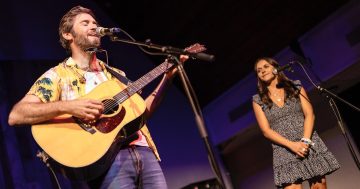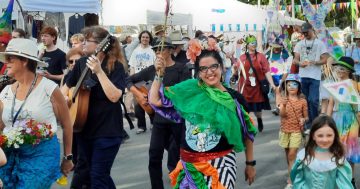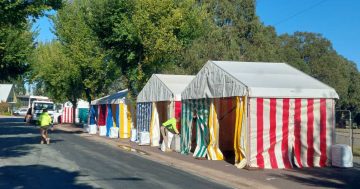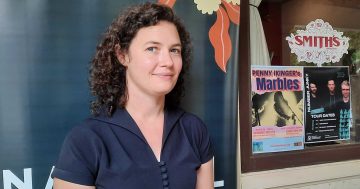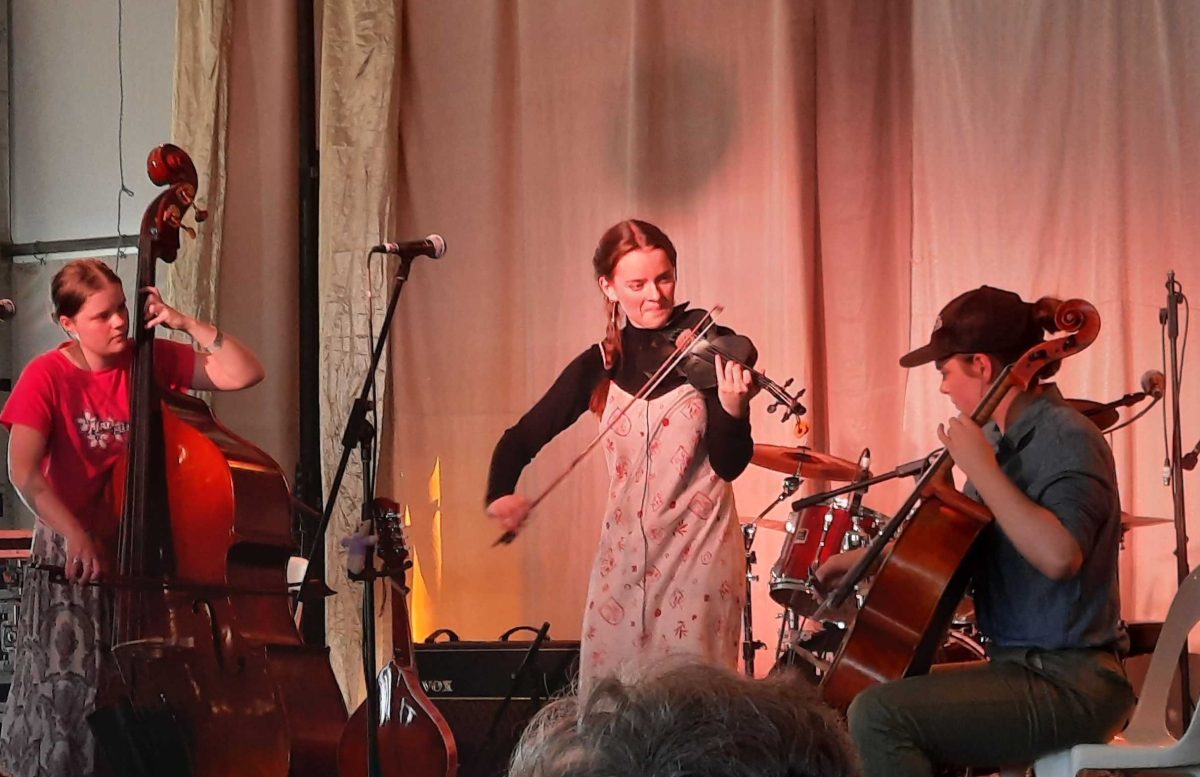
String trio Apolline wowed audiences at the 2024 National Folk Festival. Young artists were a feature of the event. Photo: Ian Bushnell.
The National Folk Festival will take drastic measures to ensure the survival of the 56-year-old event after suffering a disastrous financial result this year.
A company update sighted by Region details the dire situation of the annual festival staged at Exhibition Park each Easter and reveals some tough decisions amid the changed economic environment impacting music festivals across the country.
As expected, the festival took a hit in ticket sales, but the scale of the loss means that while the event will continue next year, it will have to be smaller and leaner to cut costs and become more viable.
“At this stage, we are looking at an operating deficit of about $450,000 – a result that cannot be repeated,” president David Gilks told company members.
The update says the festival will need to shrink its staff and management team, rely more on volunteers and sell its Mitchell headquarters so it can fund the business and future events.
It is expected the leaner operation will no longer need premises of that size, and renting a smaller office will also save money.
Festival organisers met with Arts Minister Tara Cheyne in the past week to discuss the challenges and pursue whatever opportunities there may be for government support.
The update says that despite strong cost controls in the current environment, ticket sales lagged, and the festival failed to meet its budget.
“While there are numerous factors that have contributed to this outcome, in many respects, the key takeaway is that it is the continuation of a trend seen in the 2022 and 2023 festivals,” Mr Gilks said.
“Audience behaviours have changed significantly since the end of pandemic restrictions and the return to pre-COVID norms that many expected and planned for has not eventuated.”
The update says the festival will also review its internal processes and governance.
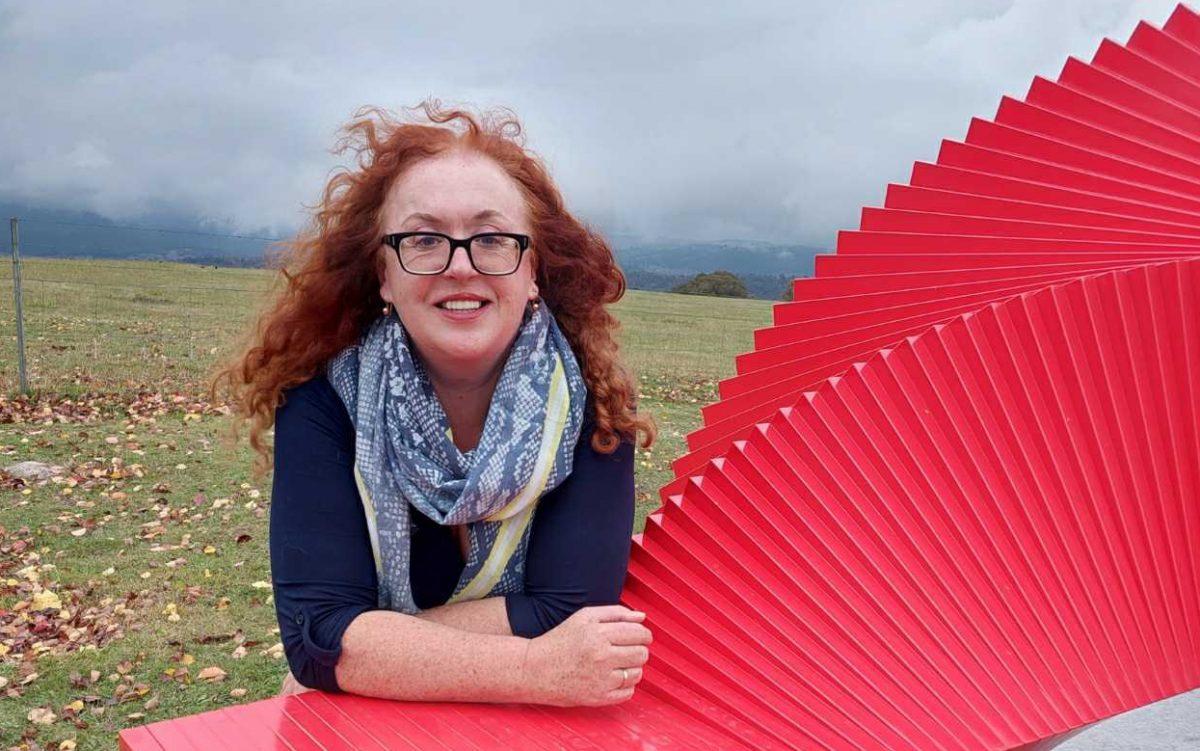
National Folk Festival Director Heidi Pritchard says it was a beautiful festival, but many people just didn’t show up this year. Photo: Supplied.
Director Heidi Pritchard told Region that the Folk Festival was in the same boat as other music events in the country but promised there would be a 2025 festival.
Ms Pritchard said ticket sales were down about 25 per cent on last year, which equates to about 10,000 fewer patrons.
But interestingly, ticket sales to 18 to 30 year olds were well up, and they were the future of the festival, she said.
Ms Pritchard stood by the festival as presented, saying the artistic directors put together a beautiful event and a really creative program.
What a smaller festival would look like, she could not say.
“Right now, we are fiscally responsible, and we are going to talk to our community about what this looks like,” Ms Pritchard said.
“It may be fewer days, but we don’t want to do that. It might be one less stage; it might be a smaller footprint.”
She said the festival was looking at a range of measures to recover its financial position and was working with all levels of government.
The ACT Government was sympathetic to its situation, and Ms Pritchard said the team received a positive reception from the Minister.
“I feel there is a real recognition in the ACT Government that we are essential for the Canberra festival season,” she said, adding that there were many ways the government could support the festival.
Ms Pritchard said that, like the Woodford Folk Festival, the National would continue reaching out to folk music fans to support the event by buying tickets.
She said, “The live music industry is in crisis, and the only way to support it is to buy tickets.”
“We need the support of patrons.”
She ruled out any increase in ticket prices to meet the shortfall.
Mr Pritchard said the full evaluation of the 2024 festival was expected by the end of the month.
The just completed Canberra International Music Festival, which compressed its format to a five-day event this year, appears to have turned around a big loss last year and is expected to break even or post a small deficit.
Organisers had feared people would not turn up, but the smaller format and the late rush of ticket sales seemed to have saved the day.
Music festivals across the country have been struggling, with some notable cancellations, mainly due to the rising cost of staging events, including insurance, and the cost of living crisis hitting ticket sales.
A federal parliamentary inquiry into the live music industry is underway, and Music Australia is conducting its own review.
The Folk Festival has made a submission to the inquiry and has been talking with Music Australia.













